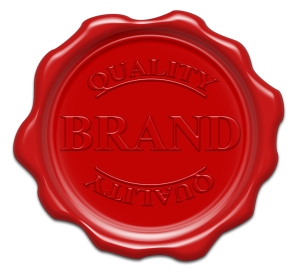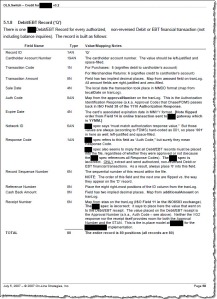Is Your Brand Intentional or Unintentional?
 In my last post, “Make Your Elevator Speech Distinctive,” I said I’ve become known as “the guy who helps his clients raise their fees by up to 2,000%.” That’s true. People refer to me as the 2,000% guy all the time.
In my last post, “Make Your Elevator Speech Distinctive,” I said I’ve become known as “the guy who helps his clients raise their fees by up to 2,000%.” That’s true. People refer to me as the 2,000% guy all the time.
It’s important to note, though, that my 2,000% “brand” or “promise” had to be invented. That is, I had to dig through my projects and study the facts, after which I discovered this result I’d been producing but hadn’t been advertising. If I hadn’t dug, the market wasn’t going to come up with that fee-raising benefit on its own.
You could call my 2,000% moniker a feat of intentional branding. I manufactured it, and pushed it out there through my materials, networking, workshops, and speeches.
At times, though, I’m not sure we have to work so hard coming up with a brand. Sometimes a brand finds us. Call it unintentional branding. I have a story about that kind of branding, too.
I wrote the first edition of my problem-solving book, “Accidental Genius,” ten years ago. At the time, I was 37 years old, and let me tell you: For the first 37 years of my life, no one ever called me a genius. Not once. Enthusiastic, yes. Creative, yes. Funny, yes. A genius? No.
When “Accidental Genius” was released, that changed. Suddenly, people were calling me a genius right and left. Since the book came out, I must have been called by that name five hundred times.
Understand, I’m not knocking it. Every time I’m called a genius, I’m grateful. But here’s the thing: In the ten years since that book came out, I’m no smarter than I was the previous 37. If anything, I’m not as bright as I once was.
The word, though, became associated with me through repetition. 25,000 copies of my book were sold with my name and the word genius on the cover. I gave speeches where I talked about ways of accessing your genius. I did dozens of interviews where I talked about how people could have “a genius moment.” The association was unintentional, but it stuck.
My questions to you, then are these:
- What happy branding accidents have happened in your career?
- How have you been tagged by your audience in ways you didn’t expect?
- Is there a brand growing around you that you’ve been ignoring or resisting?

